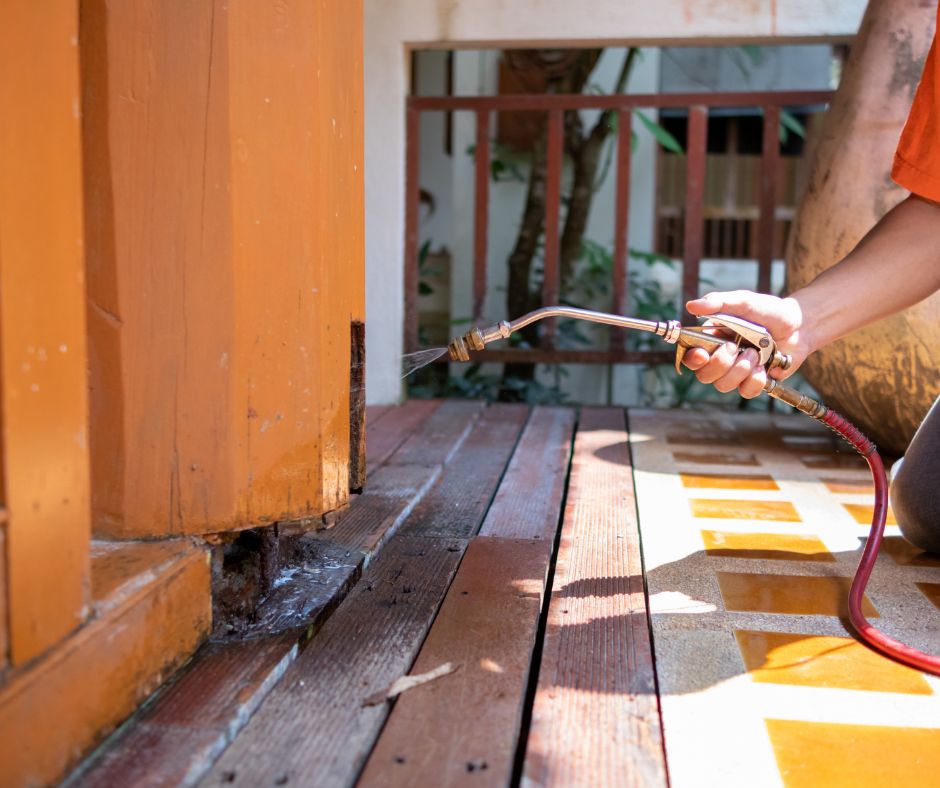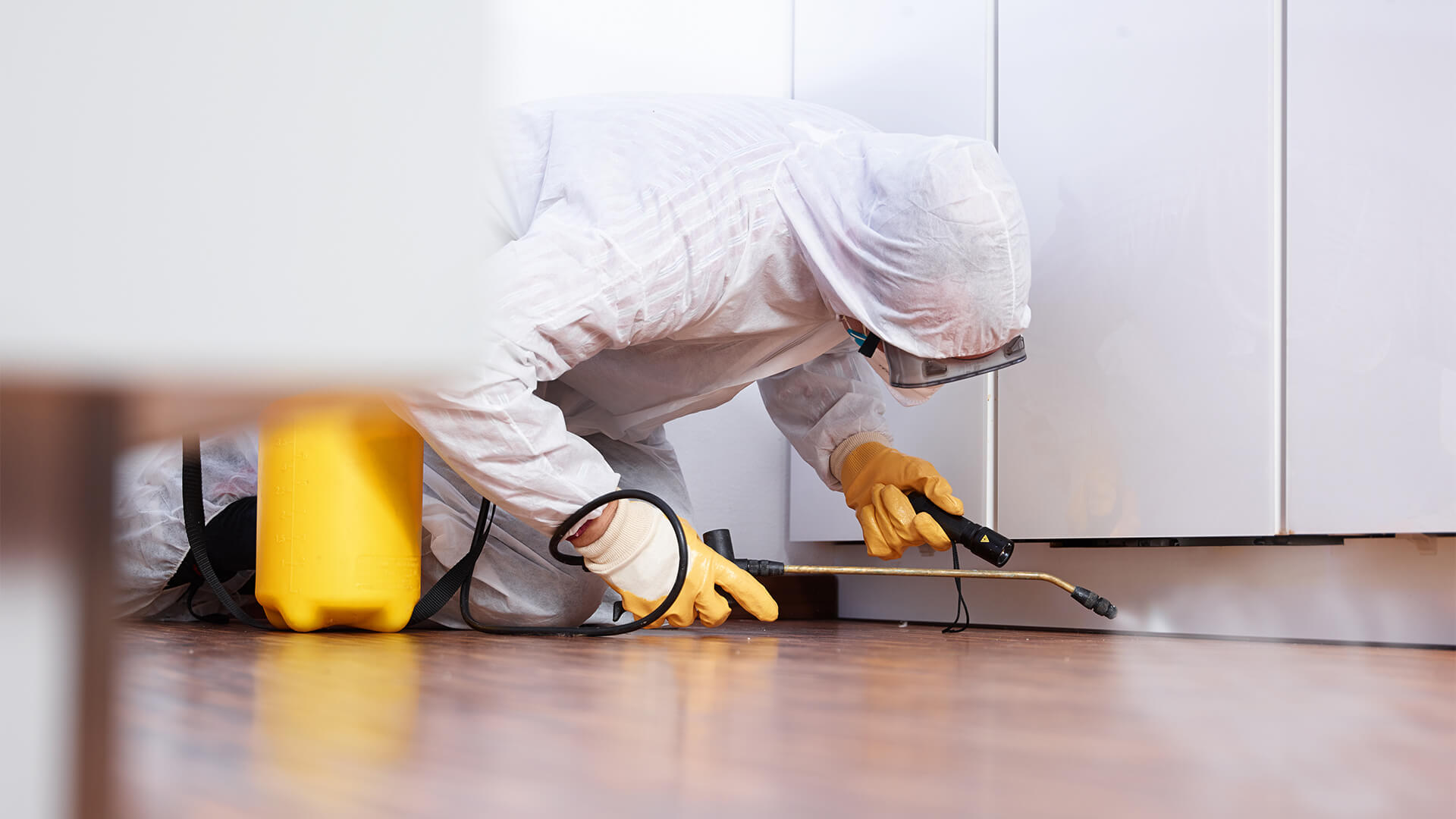Reliable Cockroach Exterminator Port Charlotte to Eliminate Infestations in Your House
Learn About the most up to date Breakthroughs in Parasite Control and Exactly How to Implement Reliable Treatment Solutions
In current years, the field of parasite control has seen significant developments, driven by the demand for effective and sustainable therapy services. Ingenious approaches such as Integrated Bug Management (IPM) combine eco-friendly techniques with innovative technology, improving both efficiency and environmental responsibility.
Eco-Friendly Pest Control Options
Over the last few years, the need for green pest control alternatives has actually risen as home owners and companies alike seek lasting options to standard chemical treatments. This shift is driven by growing ecological recognition and a need to reduce the health and wellness threats connected with artificial chemicals.

Environment-friendly pest control methods incorporate a series of methods that focus on the use of natural materials and methods. Integrated Pest Administration (IPM) is one such approach, incorporating biological, social, and mechanical strategies to handle pest populations while reducing reliance on chemicals (Wildlife removal services). This all natural technique highlights avoidance via habitat manipulation and the intro of natural predators, consequently promoting a well balanced environment
An additional preferred choice is using organic chemicals stemmed from plants, which tend to be less damaging to non-target microorganisms. Products like neem oil and diatomaceous planet have actually gained grip for their performance in managing bugs while posturing minimal dangers to human health and the setting.
In addition, exclusion techniques, such as sealing entrance points and keeping sanitation, play a crucial role in environmentally friendly pest management. By adopting these sustainable methods, businesses and individuals can effectively handle pests while promoting a healthier earth for future generations.
Smart Innovation in Insect Administration
Technology is improving the landscape of parasite monitoring, with wise innovation becoming a critical pressure in enhancing performance and performance - Wildlife removal services. The assimilation of Internet of Things (IoT) devices, artificial intelligence (AI), and data analytics is revolutionizing how parasite control experts come close to infestations
Smart catches furnished with sensing units can spot insect task in real-time, sending out prompt signals to drivers. This enables prompt feedbacks, decreasing damage and minimizing the need for extensive therapies. Additionally, AI algorithms examine historic information to predict insect habits, allowing proactive treatments based upon ecological problems and infestation patterns.
Drones and automated automobiles are additionally playing a significant duty in pest administration, providing aerial evaluations of big areas, identifying hotspots, and also distributing targeted therapies. These modern technologies not only simplify operations but additionally improve security by limiting human direct exposure to potentially hazardous chemicals.
Furthermore, mobile applications equip consumers to keep an eye on parasite activity and access professional suggestions, fostering a joint strategy to pest monitoring. Overall, the fostering of smart modern technology is setting a brand-new requirement in parasite control, highlighting data-driven choices and sustainable practices that inevitably profit both house owners and experts alike.
Integrated Bug Monitoring Approaches
Integrated Insect Management (IPM) uses an alternative approach to pest control, combining different strategies to effectively take care of parasite populations while reducing risks to human health and wellness and the environment. IPM focuses on understanding the pest life cycle, their natural enemies, and the ecosystem in which they thrive.
Among the fundamental components of IPM is keeping an eye on pest populations through normal examinations and data collection. This permits the identification of pest limits, determining when intervention is required. Social practices, such as crop sanitation, habitat, and rotation adjustment, are essential in minimizing bug learn this here now frequency and promoting plant health and wellness.
Mechanical controls, consisting of obstacles and traps, are additionally important in IPM. These approaches can physically eliminate or deter insects without making use of chemicals. When necessary, the wise application of chemical controls is employed, concentrating on targeted treatments that lessen environmental influence.
Education and learning and partnership among stakeholders, including farmers, pest control experts, and the neighborhood, are important for the effective implementation of IPM strategies. By prioritizing sustainable methods, IPM not only addresses pest concerns yet additionally cultivates a much healthier ecological community.
Biological Control Techniques
Many biological control techniques are increasingly identified for their effectiveness in handling bug populations while advertising ecological balance. These strategies harness all-natural killers, bloodsuckers, and microorganisms to decrease pest numbers without relying upon artificial chemicals. The introduction of ladybugs can successfully manage aphid populations, while nematodes target soil-dwelling bug larvae.
Furthermore, making use of microbial pesticides, such as Bacillus thuringiensis (Bt), gives an eco-friendly option for taking care of caterpillar pests. These items specifically target pest varieties, decreasing injury to advantageous pests and pollinators. Preservation biological control highlights enhancing environments for all-natural opponents, such as birds and advantageous pests, therefore encouraging their existence in farming systems.
Research remains to expose cutting-edge methods within this area, such as using scents to disrupt pest breeding patterns or the advancement of biocontrol representatives via hereditary engineering. Carrying out these methods can lead to lasting insect management techniques that reduce the dependence on chemical interventions, inevitably cultivating healthier ecosystems. As recognition of these techniques grows, they are coming to be important elements of integrated bug administration (IPM) methods, offering a balance between effective insect control and environmental stewardship.
DIY Parasite Control Solutions
As property owners seek effective methods to tackle pest issues, do it yourself bug control options have actually gotten popularity for their access and cost-effectiveness. These approaches empower people to resolve problems utilizing easily available products and methods, commonly without the requirement for professional treatment.

In addition, maintaining appropriate cleanliness and regular inspections can protect special info against pest access and nesting (Wildlife removal services). Simple techniques, such as securing fractures, eliminating food resources, and decluttering, can significantly diminish parasite populaces. Traps, both homemade and commercially available, can likewise provide effective solutions for surveillance and managing particular pests like rodents or insects

Verdict
The integration of eco-friendly parasite control alternatives, wise modern technology, and innovative monitoring approaches provides an extensive method to effective parasite administration. By welcoming Integrated Bug Management (IPM) and utilizing organic control techniques, alongside do it yourself solutions, lasting and accountable bug control can be achieved. These improvements click to read more not only enhance the efficiency of bug management techniques however also add to a much healthier setting. Executing these strategies promotes a balanced ecological community while efficiently addressing pest populaces.
Environmentally friendly bug control techniques incorporate a range of techniques that focus on the usage of all-natural substances and methods. Integrated Pest Administration (IPM) is one such technique, incorporating biological, cultural, and mechanical strategies to handle parasite populations while decreasing reliance on chemicals. As understanding of these strategies expands, they are becoming integral elements of incorporated bug administration (IPM) techniques, using an equilibrium in between reliable parasite control and environmental stewardship.
The integration of environmentally friendly bug control choices, wise innovation, and innovative management techniques presents an extensive method to effective insect management. By accepting Integrated Insect Management (IPM) and utilizing biological control approaches, along with Do it yourself solutions, responsible and sustainable parasite control can be attained.